What is Long Term Care?
Loving care for the long term.
 MEMORY CARE
MEMORY CARE
“When I walk in, I’ll see a resident and they’ll smile and recognize me. They don’t know my name most of the time, because they don’t remember that well, but they know they know me and they know I’m going to help them with whatever they need.”
Vicky Hesser
Director of Nursing

SKILLED NURSING
“You have to be compassionate and have passion in what you do, and I think long term care is the perfect place to really pull all of that together. You have the huge potential to impact somebody’s life and the quality of care and even the lives of their families.”
Jeremy McDaniel
Nurse, Unit Manager
 ASSISTED LIVING
ASSISTED LIVING
“In assisted living, it’s more the connections you make with the people. They don’t need as much personal care as in more long term care. It’s being able to notice the little changes as they start to happen and then also being able to care for them and be a friend.”
Tom Gorski
Certified Nurse Assistant

SHORT STAY REHAB
“It’s a population that therapy is really able to impact — we restore these people back to their lives. You walk in and see people who are smiling, who are happy, and who are still planning on going home.”
Tabitha Smith
Rehab Program Director, OT, LT
It’s not one size fits all.
Our oldest generation is as diverse as our youngest. Settings vary based on needs.
Skilled Nursing
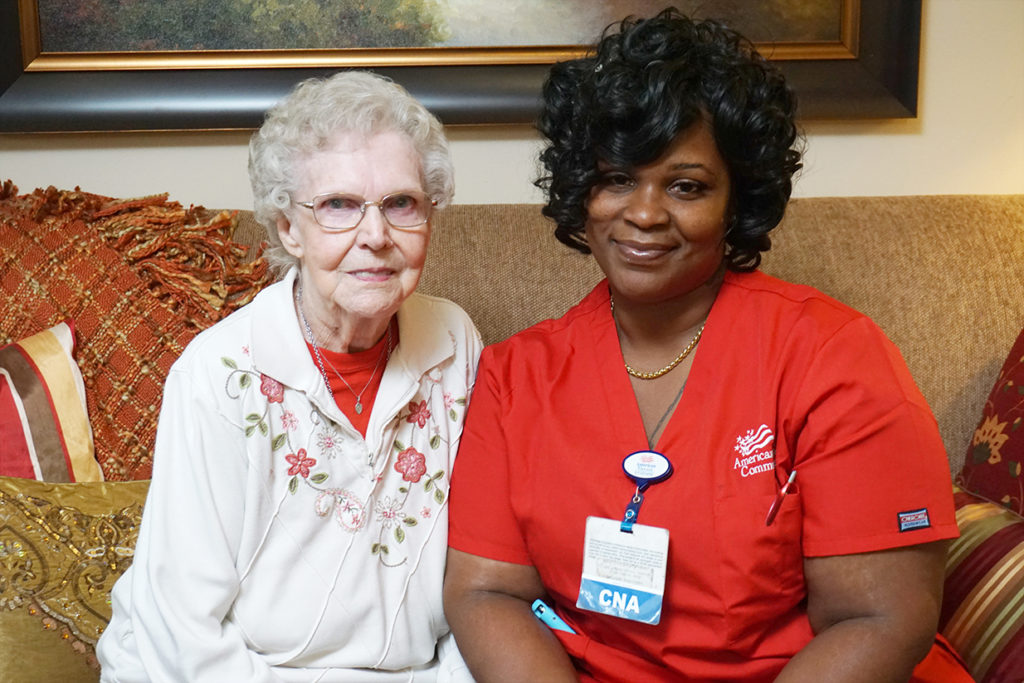
Skilled nursing care facilities are licensed healthcare facilities that offer round-the-clock nursing care and are inspected and regulated by a state’s department of health services. Skilled nursing care involves trained professionals performing services that are needed due to temporary or permanent injury or illness. Staff also provide custodial or personal care that focuses on helping residents with activities of daily living such as bathing, dressing, personal hygiene, eating, maneuvering in and out of bed, walking and incontinence. Seniors who require a skilled nursing setting can no longer live alone and need more help than their family or present care giver can provide.
Assisted Living
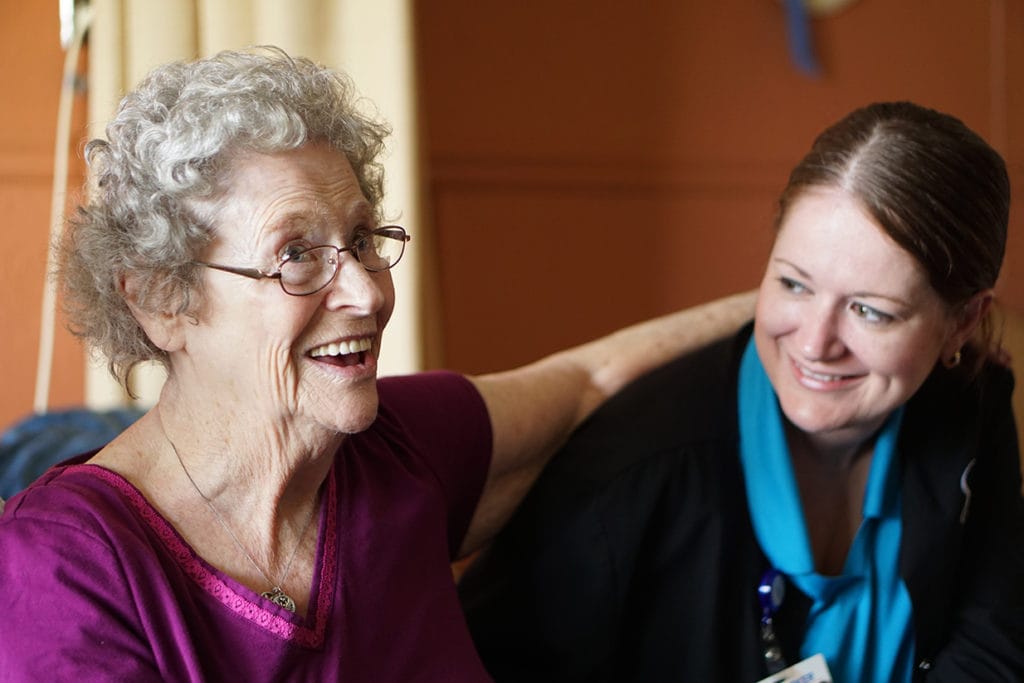
Assisted living combines housing, support services and health care, as needed, to older adults who are still active and vital but can no longer live independently. Those that need assistance with everyday activities such as bathing, eating and dressing may find that assisted living is a good option for them. Personal care services in assisted living often include transportation and medication assistance, and certain services are available around the clock. Assisted living facilities typically do not provide direct nursing care, but help seniors obtain that care when needed. Seniors in assisted living usually have the option of a private room or shared space in an apartment, depending on their preferences and budget. Assisted living facilities are not federally regulated but are often licensed by the state in which they are located.
Short Stay Rehabilitation
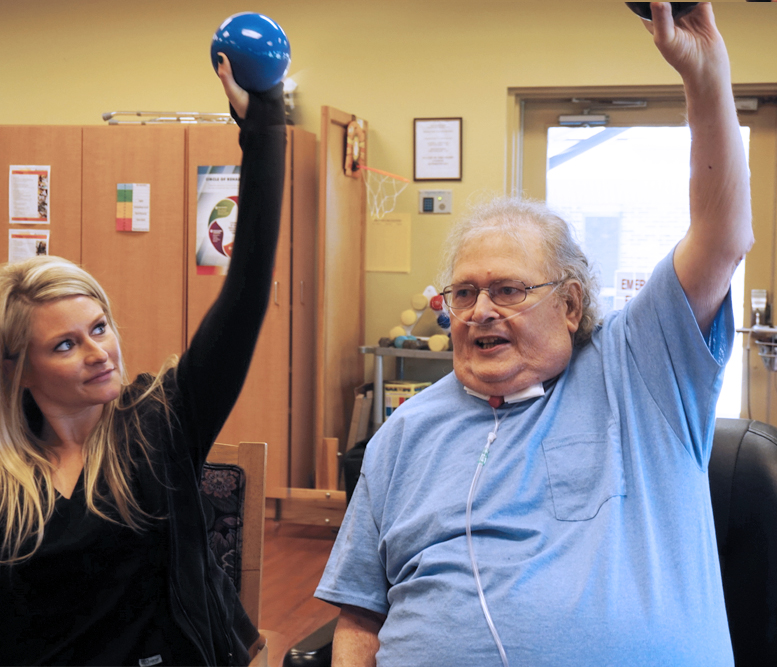
Short-stay rehabilitation programs provide therapy for individuals recovering from a surgery, illness or accident, helping them to achieve their maximum functional capacity and get back to their homes. Short-stay rehab patients are not necessarily frail or elderly. They may simply require physical, occupational, speech therapy or a skilled service following time in a hospital. The length of stay for those needing short-term, in-patient rehabilitation can range from a couple of days to several weeks. Skilled nursing facilities (SNFs) offer short-term rehabilitation services that may be covered by Medicare for up to 100 days. Dedicated, skilled therapists are part of an interdisciplinary team that includes physicians, nurses, social workers and nutritionists, who work with the patient and family members to develop an individualized plan of care focused on returning the person to their community at their optimal functional level.
Memory Care
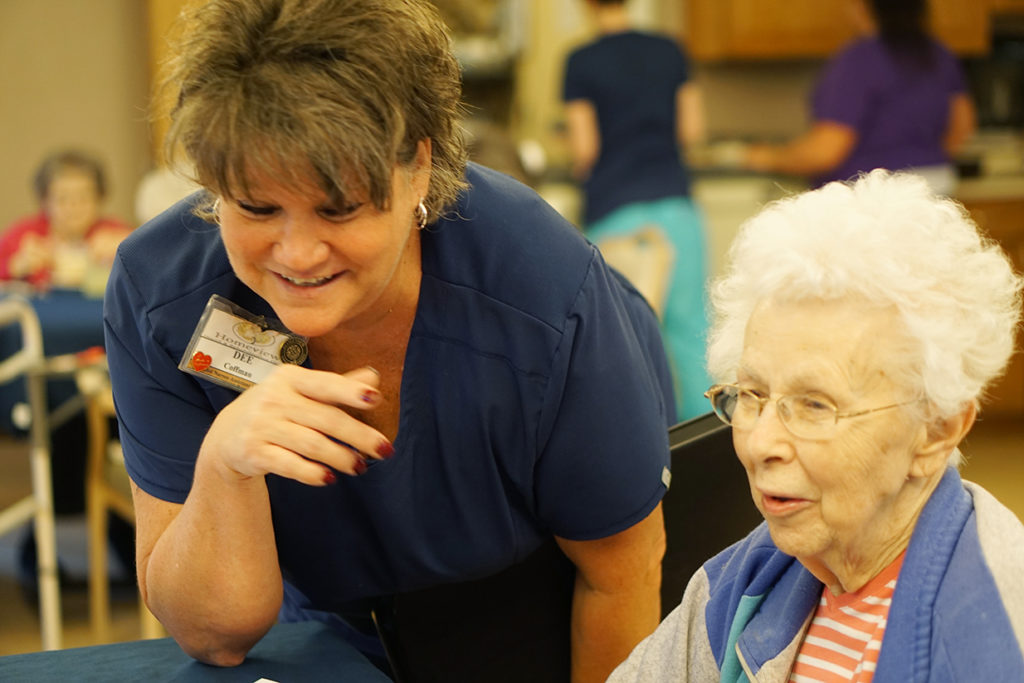
Memory care is a distinct set of services that specifically caters to patients with Alzheimer’s disease, dementia and other types of memory problems. Alzheimer’s and dementia pose unique care challenges. In addition to providing assistance with activities of daily living, the staff in memory care are specially trained to assist people with dementia or impaired cognition. Communities that provide memory care often have a neighborhood solely for residents requiring this kind of care and incorporate design elements that research has shown to lower stress in individuals with Alzheimer’s or dementia. Outdoor and indoor spaces are designed to be both secure and soothing. In addition to the general state-level licensing of care facilities, memory care can be further regulated by special laws requiring care providers to perform certain additional tasks and disclose the special services they offer.
The Most Caring Career
While a paycheck may be enough reward for performing a job, your life’s work deserves more. Fulfillment. A sense of purpose. The knowledge that you are making the world just a little bit better.
Service to others meets all those criteria – fulfillment in knowing that you making a difference in the lives of individuals not related to you, purpose in focusing on other people rather than yourself, and often immediate evidence that you are improving the world one smile at a time.
Geriatric caregiving provides even more. You will assist a population that has already done its best to make the world a better place. You will establish long term relationships and enrich your own life as well as others. And you will work in an environment with other compassionate, like-minded people who share your desire to make a difference.
Serving Seniors
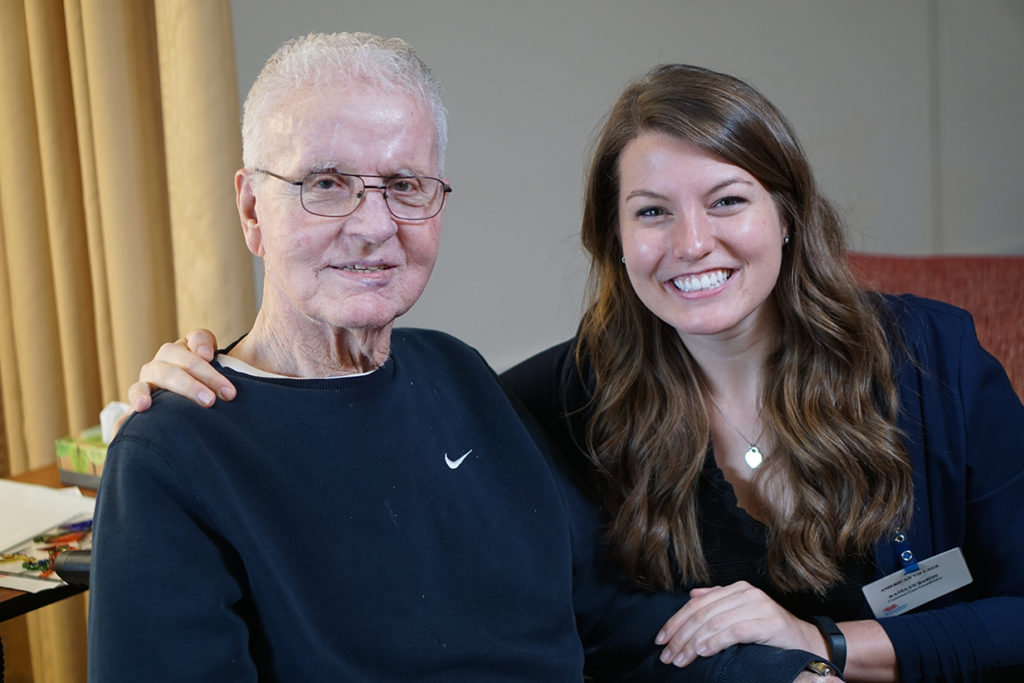
Today’s seniors raised us, educated us and supported us through all of our challenges and struggles. Now many of them need our help.
Families do what they can, but dementia and other complex conditions often require full-time care and medical expertise. Skilled nursing and assisted living facilities provide what loved ones often cannot. Senior living communities are active, welcoming places where residents can continue to maintain independence and vitality. They also have the expertise to handle complicated medical conditions and are well-equipped to handle the financial and social services needs of disabled, chronically ill and geriatric residents.
Diverse Communities
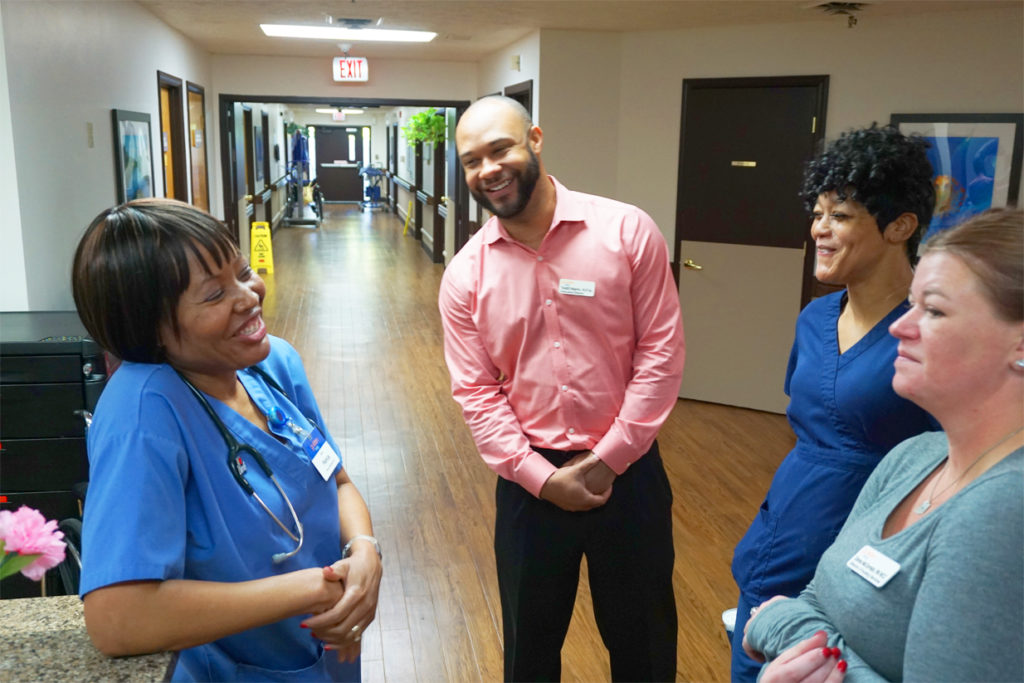
Small or large, skilled nursing and assisted living facilities are complex communities alive with action. A diverse group of people and occupations come together to best serve residents’ health care needs utilizing a person-centered approach. Unlike other care settings, where interactions with patients and families are intermittent, geriatric care workers develop deep relationships with residents and their families.
Staff at skilled nursing and assisted living facilities work on collaborative teams, maximizing and utilizing each person’s unique skills and knowledge to provide the best possible care to residents.
There are many occupations to pursue in geriatric care. Direct caregivers, primarily nurses, nurse assistants, therapists, and others, are in high demand. Other professionals are also necessary to ensure the best care is provided, including those in administration, social services, dietary and nutrition, care coordination, activities planning and various other support services. All of these roles have the potential to be deeply rewarding, because they all impact patient care in some way.
With an aging population, there are currently many opportunities in long term care and assisted living, whether you’re looking for an entry-level position or a path to professional advancement.
